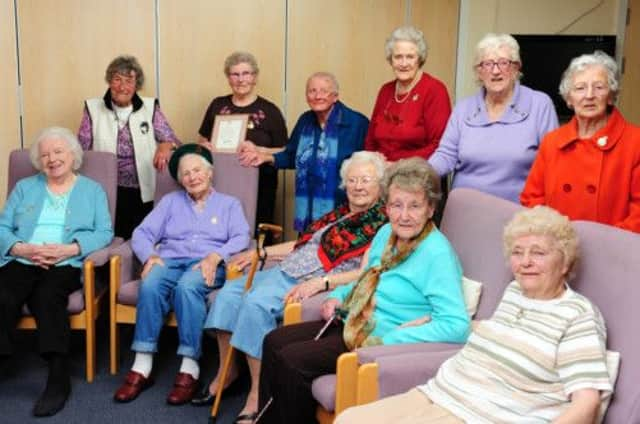‘Land Girls’ reunited in Horsham - Women’s Land Army and Timber Corps reunion


The ‘Land Girls’ played a vital role in keeping Britain’s rural economy - particularly food production - functioning during both world wars.
With so many of the men away it fell to women to step in, taking on jobs like milking cows and feeding animals, but also tackling traditionally male tasks like ploughing and operating heavy machinery.
Advertisement
Hide AdAdvertisement
Hide AdThe Second World War version of the Women’s Land Army began in 1939 and, with the country struggling to rebuild, was not disbanded until
1950.
Land Girls played an important role in Britain’s social change, simply by giving women the opportunity to prove that they could cope with the long hours and hard work required in agriculture.
Age UK Horsham arranged the reunion, and hopes to organise another for October or November this year.
Those attending the reunion had fascinating stories to tell.
Advertisement
Hide AdAdvertisement
Hide AdAll six of the Coldbeck sisters, from a family with a farming background who had come over from Ireland, signed up to the Land Army.
Joy told the County Times she ended up at Shipton Bellinger in Hampshire, while others were sent to Chichester or Cowfold.
Two of them were sent to a training centre at Plumpton, where they taught the other girls, sharing their previous experience of keeping cows.
Doris Bakter spent four and a half years in the Land Army. She was placed at Edburton, milking and working on the land from 5.30am until around 5pm each day.
Advertisement
Hide AdAdvertisement
Hide Ad“At harvesting time, we didn’t used to finish until 11 o’clock at night,” she said.
However, her upbringing had prepared her for the hard work and long hours - “I’ve always worked on the land. My father was a cowman, I used to work with him.”
Illa Hayward, who attended the reunion to accompany a friend of hers, also had memories of civilian life during the war - but from the German
side.
She didn’t recall any German equivalent of the Women’s Land Army, or any problems with food shortages until the economy collapsed at the end of the war.
Advertisement
Hide AdAdvertisement
Hide AdHer family played its part in the post-war reconciliation, thanks to her father.
“He was a foreign language teacher who made contact with an English school,” she said.
He arranged for students from Britain to stay in Germany for a three week exchange programme, but things went wrong when the visiting teacher unexpectedly disappeared back to England.
“My father had to look after them - a group of about 15 were left leaderless, and my father took them under his wing.”
Advertisement
Hide AdAdvertisement
Hide AdThe peace process didn’t end there - one of the students went on to become her husband.
Audrey Broad told the County Times that she worked in the Timber Corps.
The Corps sent her to various places around the county, and eventually to the village that is her home to this day.
“I started off in Arundel, then went to Poynings, then to Southwater, and that’s where I stayed,” she said.
Advertisement
Hide AdAdvertisement
Hide AdGladys Baldwin spent five years at Madgelands Farm in Barns Green.
“It was a hostel with 15 of us,” she said. “We had fun but we worked hard, very hard.
“We had a warden looking after us, and there was no nonsense.
“We all had different jobs. I had ploughing.
“I love ploughing - I think it’s wonderful to sit on the tractor and see that earth turning
over.”
Advertisement
Hide AdAdvertisement
Hide AdShe met her future husband in the Queen’s Head pub, and they married in 1948.
He served in 212 Squadron of the RAF, which used the famous Catalina flying boats.
“The house that we were in was beautiful,” Gladys said, adding that she would love for her Land Army and Timber Corps badge to be taken there, to be mounted on a wall as a reminder of the Land Girls who once stayed there.